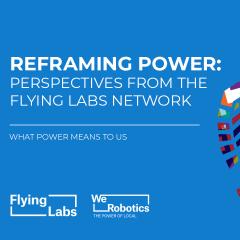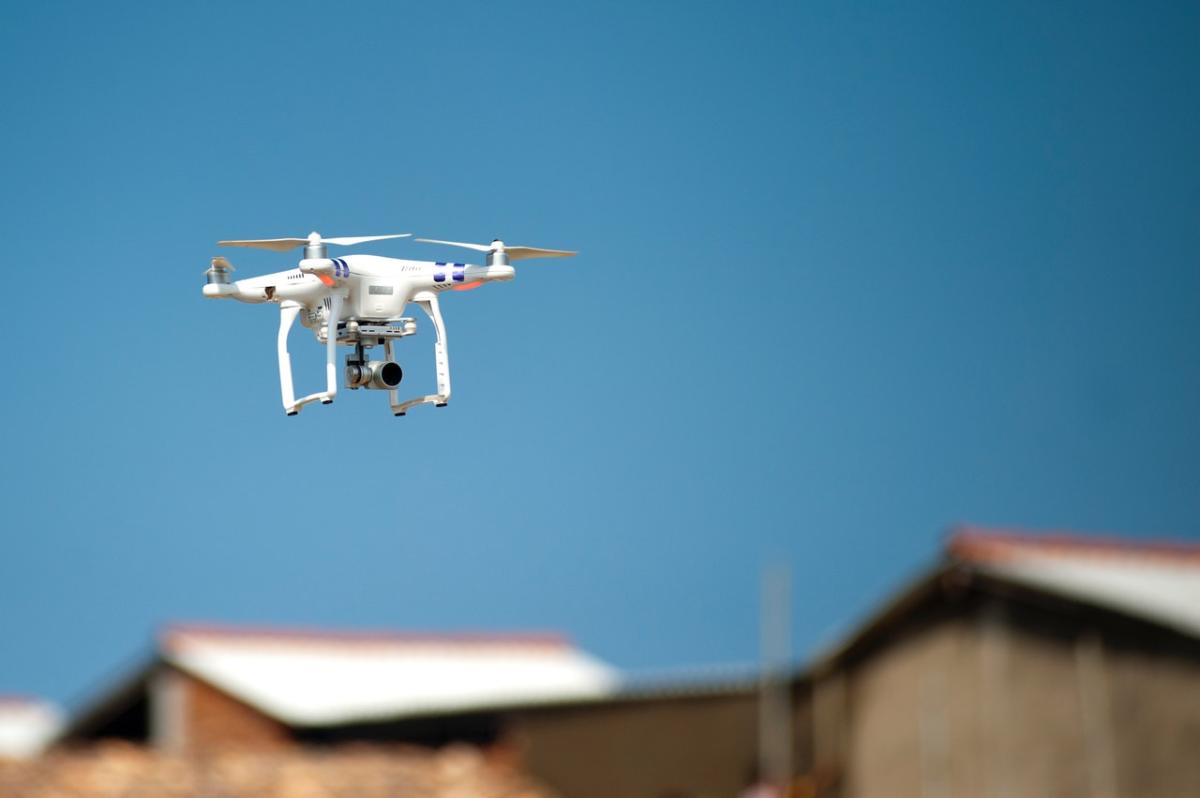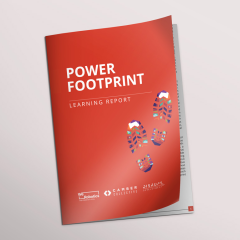
Meet the Unusual Solutions Competition Finalists
October 16th, 2019

On September 8th, we officially closed the application phase of the Unusual Solutions Competition. Our expert panel and jury then took to the difficult task of reviewing and assessing each idea to advance nine submissions to the final round. Today, we're excited to share with you the finalists and their ideas—each of which will receive a grant of US $15,000 to turn their idea into a concept during the next 4 months and prepare a strong pitch for the "Final Pitch" event, to be held in late February in Nairobi. At the Final Pitch event, the best overall solution will win US $100,000, which, like the rest of the Competition, is generously funded by Omidyar Network.
- Tawanda Chihambakwe, Zimbabwe: Building a 'Drones for Good Network' will enable drone pilots, technicians, and data scientists to connect, collaborate, learn and grow the use of drones through ethical approaches to gathering, storing, and sharing data. It will be designed to connect and empower local drone stakeholders and create a space where they benefit from each other's insights and experience across communities and regions. Once developed, the Network will be scalable to extend to countries around the world. This idea aims to address issues around Drone & Data Ethics.
- Shashank Srinivasan, India: In developing countries, there's a stark power divide between those who make the rules and those who have to follow them. The emerging drone industry is a clear example. Those who will create the ethical guidelines for drones are best positioned to benefit themselves while leaving communities most affected by the technology out of the process. This project will provide a low-tech, accessible solution that incorporates community perspectives in the production of inclusive, ethical guidelines for drone use. This idea aims to address issues around Drone & Data Ethics.
- Annesya Banerjee, India: The team aims to design an embeddable microphone array system for drones assisting in search and rescue operations. The system will identify the coordinates (Azimuth and Elevation angle) of the victim through a technique known as 'Sound Source Localization.' As the victim calls for help, the drone-mounted microphones will capture and transfer this audio signal to the base station. By applying several pre-processing and sound source localization algorithms on the captured signal, it's then possible to locate the victim. This idea surfaces new or improves existing Drone Data & AI Tools.
- Mounmo Bayangmbe, Cameroon: Each growing season, Cameroonian farmers select the most profitable crop to grow, harvest, and sell. Frequently, these farmers face difficulties in accessing inputs (fertilizers, improved seeds, etc.) and modern agricultural techniques. We will develop an algorithm capable of assessing drone gathered data from the farmer's plot, activity, and the soil's chemical components to generate a list of optimal yields for different potential crops—optimized and adapted to the climate of the region and in any season. This idea surfaces new or improves existing Drone Data & AI Tools.
- Nicolás di Tada, Argentina: By combining imagery and other variables collected by drones and portable weather stations (temperature readings, humidity, wind speed, and direction), we will provide firefighters with a more accurate, local, and up-to-date model to better understand and respond to forest fires. The data sources will be processed by an inexpensive, portable computer that doesn't require an Internet connection to prepare a fast fire model capable of forecasting the spread of the fire and aid responders in planning their efforts. This idea surfaces new or improves existing Drone Data & AI Tools.
- Mclaren Hoping, Papua New Guinea: The common use of poor sanitation facilities (e.g. pit toilets/bushes) in communities contributes to the spread of diseases such as diarrhea, cholera, etc. As a failure to recognize this health issue, government funds are often allocated elsewhere, leaving communities living below the poverty line to suffer. Mapping households describing the condition of sanitation facilities is one effective way to voice this concern and to facilitate improvements. With the use of drone imagery, the traditional method of conducting surveys and collecting GPS points that result in density maps focusing on a wider perspective (i.e. district/provincial) should be replaced by narrowing the focus and emphasizing more on individual households, capturing houses and polygons. This idea aims to close the Last Data Mile.
- Rose Funja, Tanzania: Jembe kilimo+ provides farmers with personal extension officers who give them counsel to improve their quality of life and the quality of their produce. The platform will offer extension officers dashboards that contain processed drone maps, weather data, and farm input information to help provide farmers actionable advice, like when to plant, fertilize, or how to combat pests. This idea aims to close the Last Data Mile.
- Sikem Brice, Cameroon: The environmental effects of climate change in Northern Cameroon have taken a severe toll on the livelihoods of communities battling extreme climate events, like droughts or floods. This project aims to distill drone and satellite data into comprehensible SMS messages and build the capacity of community journalists to report GIS data on identified environmental issues. Environmental disaster maps will also be generated to help stakeholders improve their emergency preparedness, mitigation schemes, and provide targeted solutions to identified problems. This idea aims to close the Last Data Mile.
- Ónice Arango Flores, Guatemala: There are more than 300 informal settlements in Guatemala with populations living in harsh conditions that, due to limited data, the government knows little about. This project aims to strengthen local urban planning for territorial and social risk areas by using data and local knowledge collected through drones, workshops, and surveys on mobile devices to build collaborative processes with municipalities and civil society. This idea aims to close the Last Data Mile.
We're excited to see the finalists' ideas evolve over the next few months and to share more with you about the final pitch competition coming February of 2020. Watch this space for more details!
Recent Articles

